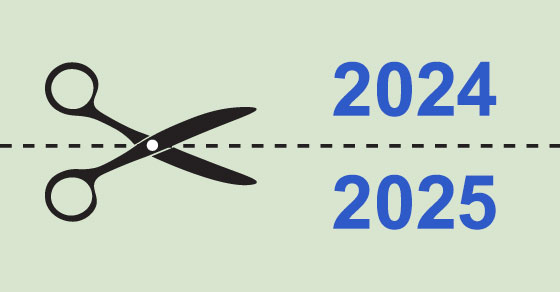
Cutoffs: When to Report Revenue and Expenses
Timing is critical in financial reporting. Under accrual-basis accounting, the end of the accounting period serves as a “cutoff” for when companies recognize revenue and expenses. However, some companies may be tempted to play timing games, especially at year end, to boost financial results or lower taxes.
Observing the end-of-period cutoffs
Under U.S. Generally Accepted Accounting Principles (GAAP), revenue should be recognized in the accounting period it’s earned, even if the cash is received in a subsequent period. Likewise, expenses should be recognized in the period they’re incurred, not necessarily when they’re paid. And expenses should be matched with the revenue they generate, so businesses should record expenses in the period they were incurred to earn the corresponding revenue.
However, some companies may interpret the cutoff rules loosely to present their financial results more favorably. For example, suppose a calendar-year car dealer allows a customer to take home a vehicle on December 28, 2024, to test drive for a few days. The sales manager has verbally negotiated a deal with the customer, but the customer still needs to discuss the purchase with his spouse. He plans to return on January 2 to close the deal or return the vehicle and walk away. Under accrual-basis accounting, should the sale be reported in 2024 or 2025?
Alternatively, consider a calendar-year, accrual-basis retailer that pays January’s rent on December 31, 2024. Rent is due on the first day of the month. Under accrual-basis accounting, can the store deduct an extra month’s rent from this year’s taxable income?
As tempting as it might be to inflate revenue to impress stakeholders or defer taxable income to lower the current year’s tax bill, the cutoff for a calendar-year, accrual-basis business is December 31. So in both examples, the transaction should be reported in 2025.
Auditing cutoffs
Auditors use several procedures to test for compliance with cutoff rules. For example, to ensure revenue is recorded in the correct accounting period, auditors may review:
- Shipping documents and customer invoices,
- Sales transactions near the cutoff date, and
- Returns and allowances near the cutoff date.
Similarly, to ensure expenses are recorded in the correct accounting period, auditors may inspect contracts and invoices near the cutoff date. They also check that expenses are matched with the revenue they help generate, in accordance with the matching principle. An accrual (a liability) is recorded for expenses incurred in the current period that still need to be paid later. Conversely, prepaid assets represent expenses paid in the current period that will be reported later when they’re used to generate future revenue. Auditors also may perform analytical procedures that compare expenses as a percentage of sales from period to period to identify timing errors and other anomalies.
It’s important to note that updated guidance for reporting revenue went into effect for calendar-year public companies in 2018 and for calendar-year private businesses starting in 2019. Under Accounting Standards Update (ASU) No. 2014-09, Revenue from Contracts with Customers, revenue should be recognized “to depict the transfer of promised goods or services to customers in an amount that reflects the consideration to which the entity expects to be entitled in exchange for the goods or services.”
Although this guidance has been in effect for several years, implementation questions linger, especially among smaller private entities. The guidance requires management to make judgment calls each reporting period about identifying performance obligations (promises) in contracts, allocating transaction prices to these promises and estimating variable consideration. The risk of misstatement and the need for expanded disclosures have caused auditors to focus greater attention on companies’ recognition practices for revenue from long-term contracts. During audit fieldwork, expect detailed questions about your company’s cutoff policies and extensive testing procedures to confirm compliance with the accounting rules.
Now or later?
As year end approaches, you may have questions about the cutoff rules for reporting revenue and expenses. Contact us for answers. We can help you comply with the rules and minimize audit adjustments.
© 2024